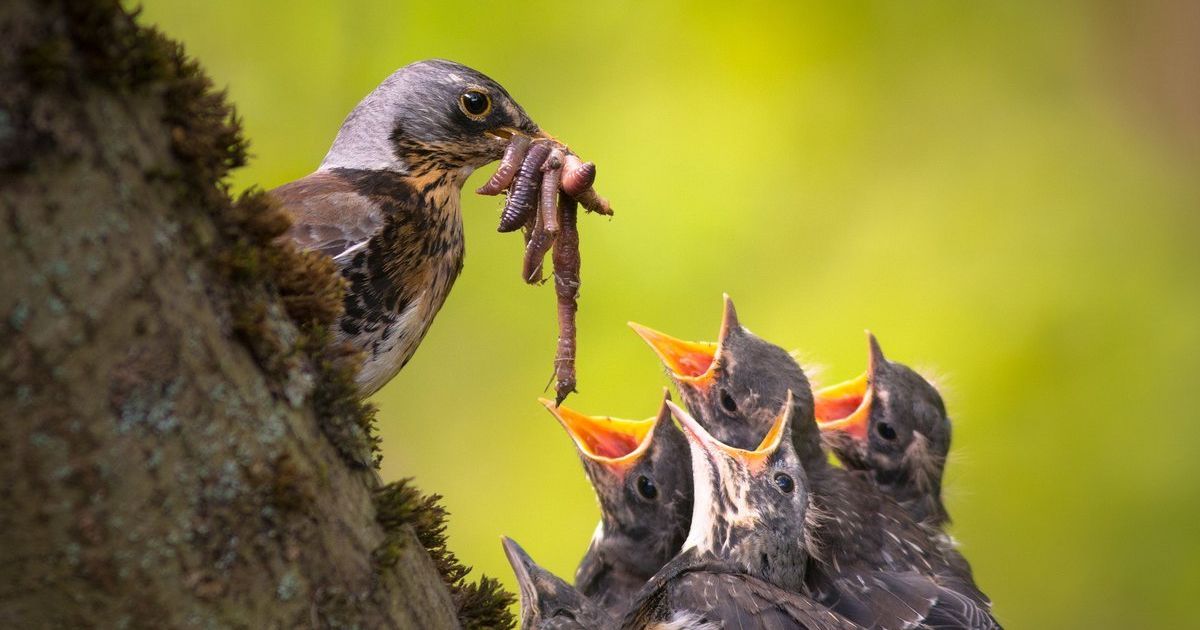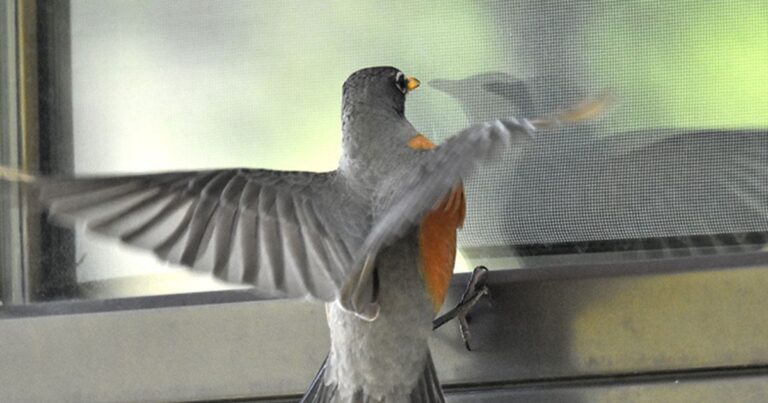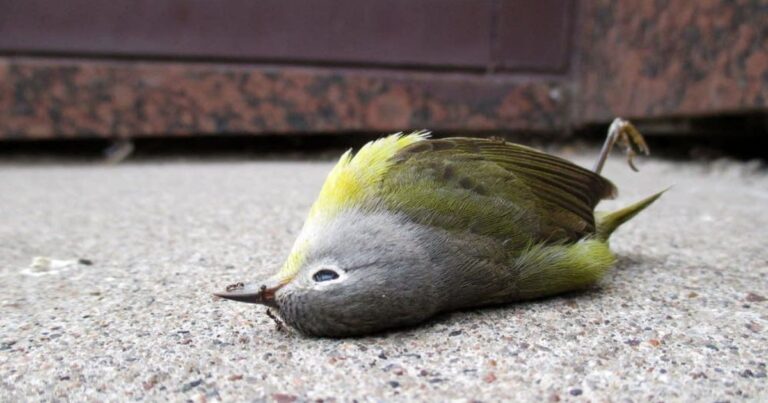What Can Baby Birds Eat? Safe and Nutritious Foods
Watching baby birds take their first flights is one of nature’s most rewarding experiences, but did you know that their journey starts with proper nutrition? Many people underestimate the importance of feeding these small creatures the right foods during their formative days.
In this article, I’ll dive into the various options available for baby birds, ensuring you’re equipped with the knowledge to support them if you ever find one in need. Together, we will learn what can baby birds eat?
How Do Baby Birds Learn to Find Food?
Baby birds embark on their journey to find food through a combination of instinctual behavior and social learning. They rely on innate reflexes; Chicks often respond to the sight of a parent bird by opening their mouths wide, triggering the feeding response.
This instinct is crucial during the early days when they are entirely dependent on their parents for nourishment. As they grow, their learning experience becomes richer and more complex.
Observational learning plays a pivotal role in this developmental stage. Young birds watch their parents forage, mimicking their actions as they explore their environment. This not only helps them identify potential food sources but also teaches them important survival skills such as recognizing which insects are safe to eat or how to navigate challenging terrains.
Some species even incorporate social cues from other birds in their flock, broadening their understanding of food availability beyond familial teaching. Through a combination of instinct and learning, baby birds gradually evolve into adept foragers, ready to face the wild on their own.
What do baby birds eat and drink?
Baby birds, or nestlings, have specific dietary needs that vary by species and stage of development. In the early days after hatching, most baby birds are fed a diet rich in protein and fat, primarily consisting of insects, worms, and other small invertebrates.
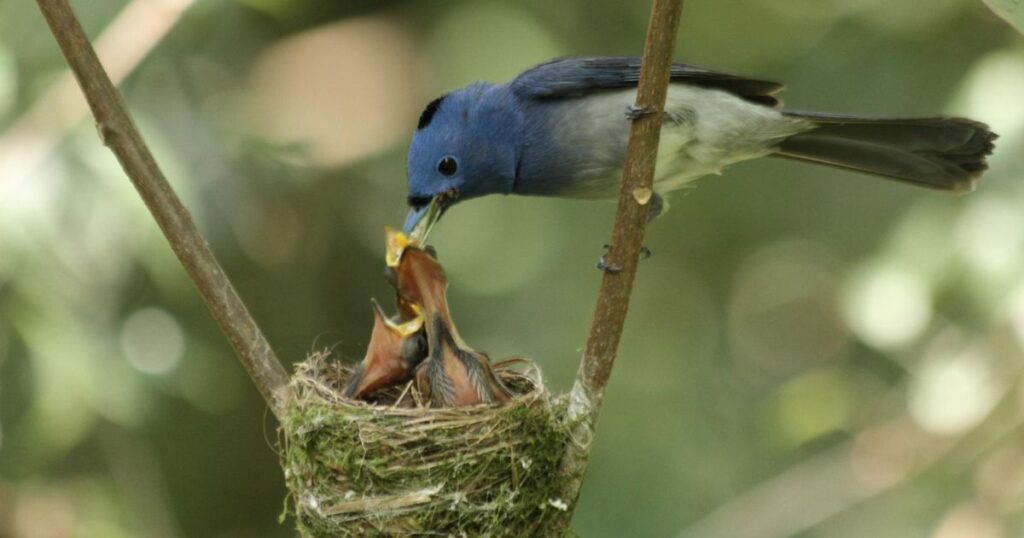
Parent birds often regurgitate this nutrient-packed food, breaking it down into a mushy consistency that is easier for their young to digest. This process not only provides essential nutrients but also fosters a close bond between parent and chick, as the act of feeding reinforces their relationship.
As they grow and develop feathers, baby birds start to diversify their diet. They begin to consume soft fruits, seeds, and even some plant matter. The introduction of solid foods helps stimulate their digestive systems and prepares them for life outside the nest. Hydration is equally crucial; while many birds obtain moisture from their food, they also need access to fresh water.
Caregivers can facilitate this by providing shallow dishes filled with water, ensuring that the chicks stay hydrated as they transition to a more varied diet. Understanding these dietary shifts not only highlights the complexity of avian development but also underscores the vital role that parents play in nurturing their offspring during this critical growth period.
What do baby birds eat without their mother?
When baby birds find themselves alone without their mother, their survival instinct kicks in, prompting them to seek out alternative food sources. While most fledglings rely on their parents for nourishment, some species can adapt remarkably well.
Many young birds are opportunistic feeders and will consume insects, seeds, or even fruits that are within reach. This adaptability not only showcases their resourcefulness but also highlights the importance of learning for survival; fledglings often mimic adult feeding behaviors as they explore their environment.
Some baby birds have developed unique strategies to find food. Certain species, like sparrows and finches, can forage for insects or glean seeds from the ground, utilizing their developing beaks to crack open hard shells. Others may benefit from the kindness of humans, who can provide supplemental feeding in emergencies.
Offering a mixture of soft fruits or soaked dog food can help sustain these vulnerable chicks until they can fend for themselves. This interaction with humans serves as a reminder of our shared ecosystem and the responsibility we hold in nurturing wildlife, especially during critical developmental phases.
What do baby birds eat from humans?
To feed baby birds, humans often find themselves curious about what these fragile creatures can safely consume. While many people might instinctively offer bread or seeds, these options can be detrimental to a chick’s health.
Baby birds thrive on a diet that closely resembles what they would receive from their parents in the wild. This typically includes high-protein foods like insects, worms, and specially formulated baby bird formulas available at pet stores.

Some well meaning humans have begun to explore alternative feeding methods, such as offering fruits like mashed bananas or pureed vegetables. While these can provide valuable nutrients, it’s crucial to ensure that any food provided is appropriately prepared and free of harmful additives.
When caring for orphaned chicks, it’s essential to mimic the consistency and texture of their natural diet using a syringe or dropper to carefully administer food can help replicate the feeding process they would experience with their mothers.
How long do baby birds stay in the nest?
The duration that baby birds remain in their nests varies significantly among species, influenced by factors like size, environmental conditions, and parental care. Typically, most songbirds fledge between 12 to 21 days after hatching, a period during which they undergo rapid growth and development.
This timeline can also be affected by food availability; in abundant environments, parents may encourage earlier fledging to take advantage of plentiful resources. In harsher conditions, they might prolong the nest stay to ensure the chicks are fully prepared for survival outside.
The behavior of nestlings plays a crucial role in their departure. As they grow, they exhibit increasingly adventurous tendencies, often peeking over the nest edge or flapping their wings in preparation for flight. This innate urge to explore is not just about finding food; it’s a critical survival instinct honed through evolutionary pressures.
For many species, such as raptors and waterfowl, the fledging process is more extended, sometimes lasting several weeks. During this time, parents continue to provide essential support, emphasizing the delicate balance between nurturing their young and instilling independence, a fascinating interplay that highlights the complexities of avian life cycles.
When baby birds leave the nest, do they return?
When baby birds take their first flight, a moment often celebrated in nature, the question arises: do they ever return to the nest? While it may seem intuitive that fledglings would seek the safety of their early home, most species of birds have evolved to encourage independence.
Once they leave the nest, young birds typically embark on a journey of exploration and self discovery, driven by instinct to find food, establish territories, and learn survival skills. This separation is crucial for their development; returning to the nest could hinder their ability to adapt and thrive in the wild.
The relationship between fledglings and their parents can be more complex than a simple cut-off. In many species, such as robins and blue jays, young birds may remain in close proximity to their parents for several weeks after leaving the nest, relying on them for guidance and occasional feeding.
This transitional phase allows them to hone their skills while still benefiting from parental support. While they may not return to the nest itself, these fledglings often maintain a connection to their parents, creating a fascinating dynamic of independence intertwined with familial bonds.
What insects can baby birds eat?
To feed baby birds, insects play a crucial role in their development, providing essential protein and nutrients necessary for growth. Soft-bodied insects like aphids and caterpillars are often favorites among nestlings due to their manageable size and high moisture content.
These tender morsels not only supply energy but also contribute vital fats that support the rapid growth rates of young birds. Beetle larvae, such as grubs, are another excellent option, offering a protein punch while being easy for fledglings to digest.
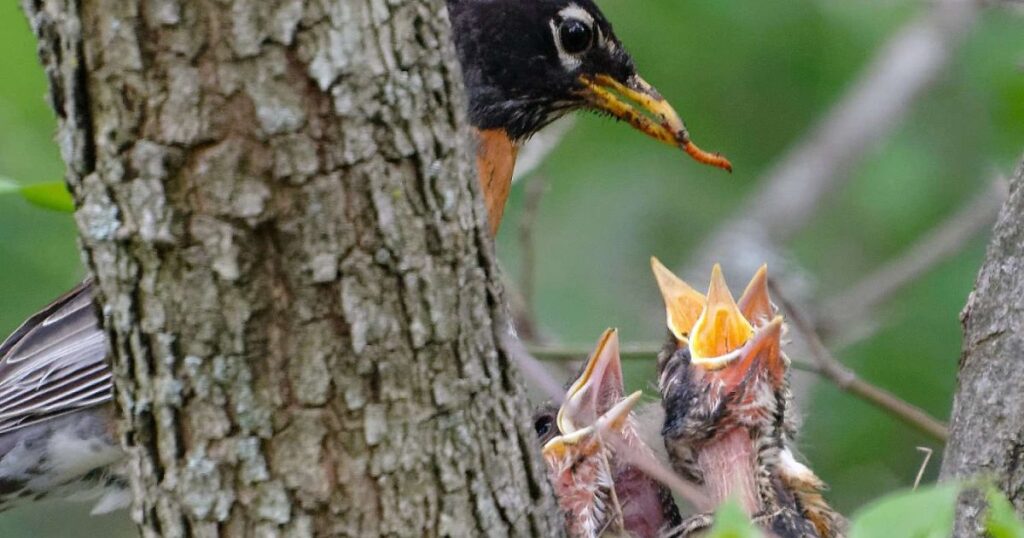
The diversity of insects available can influence the health and resilience of baby birds. A varied diet including ants and spiders can expose nestlings to different amino acids and vitamins, enhancing their immune systems.
Observing which insects parents choose to feed their chicks can reveal a lot about the availability of local biodiversity, highlighting the interconnection between bird populations and their ecosystems.
This dynamic relationship emphasizes the importance of maintaining healthy habitats, where a rich array of insect life can flourish, ultimately ensuring that our feathered friends thrive in their formative stages.
Do squirrels eat baby birds?
While squirrels are often celebrated for their acrobatic antics and playful behavior, their dietary habits can sometimes raise eyebrows, particularly when it comes to their interactions with baby birds. Contrary to popular belief, squirrels are primarily herbivorous, relying on a diet of nuts, seeds, fruits, and vegetables.
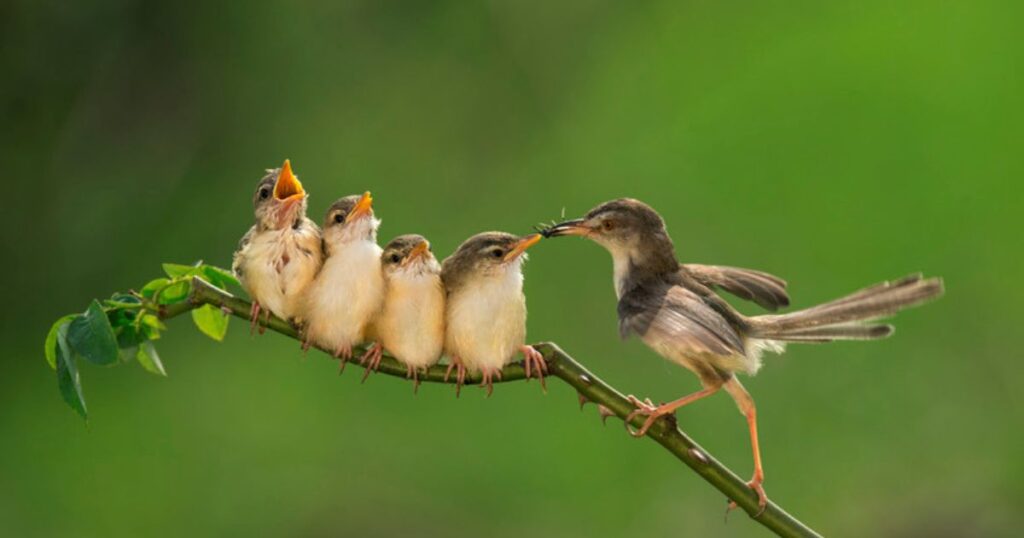
They are opportunistic feeders and may occasionally consume small animals, including the vulnerable young of ground-nesting birds. This behavior typically arises in situations where food sources are scarce, demonstrating the adaptability of squirrels in their quest for survival.
Read More: “Squirrel Proof Bird Feeder“
Final Thoughts
Understanding the dietary needs of baby birds is crucial for their growth and development. These young avians require a balanced diet that includes proteins, fats, vitamins, and minerals to thrive. Common food options include specialized bird formula, fruits, and soft insects, depending on the species.
It’s important to research the specific requirements of the baby bird you are caring for to ensure they receive the proper nutrition. By providing the right food, you can significantly contribute to their health and survival, so take the time to educate yourself on the best practices for feeding baby birds.
FAQ’s
Can baby birds eat bread?
Baby birds should not be fed bread as a primary food source. While bread may seem harmless, it lacks the essential nutrients that young birds need for proper growth and development.
Can baby birds eat rice?
Baby birds can eat rice, but it’s important to consider the type of rice and how it is prepared. Cooked rice is generally safe for young birds as it is soft and easier to digest compared to raw rice.

